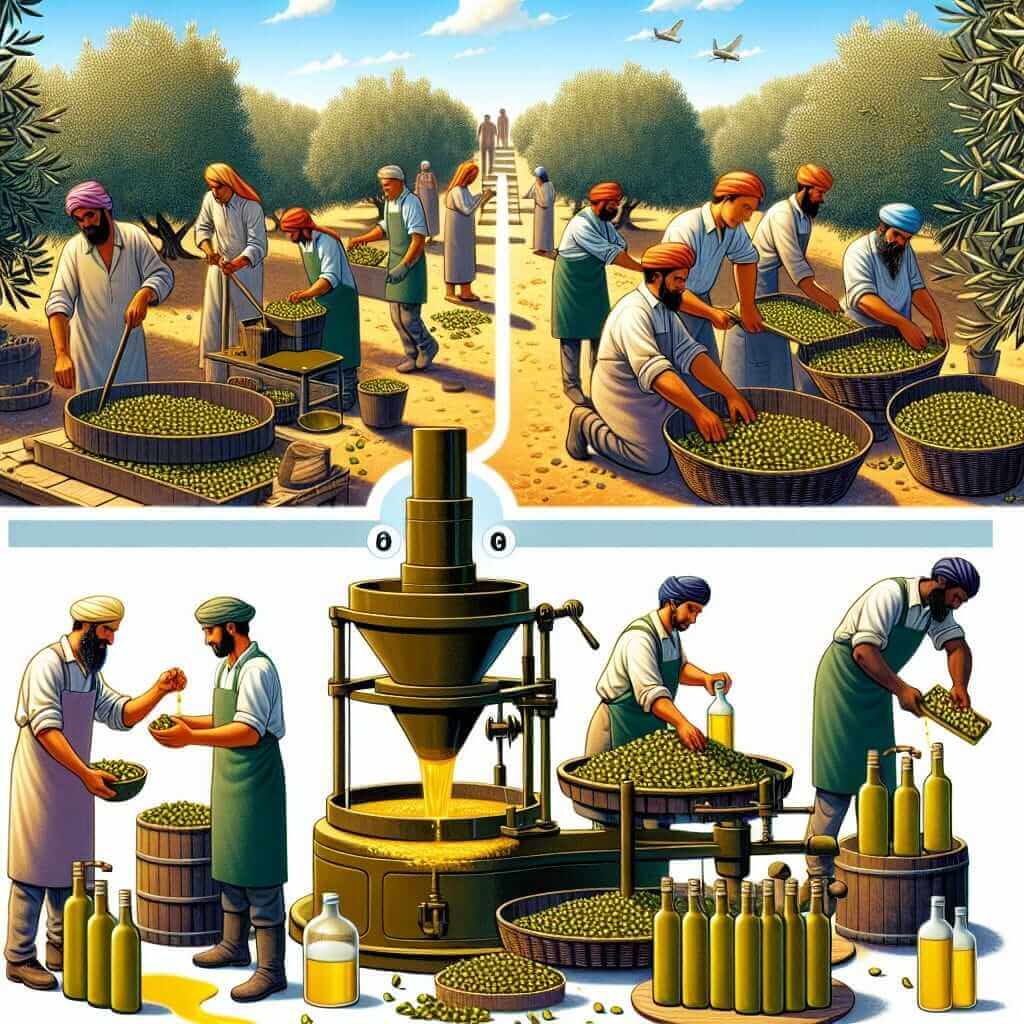As an IELTS instructor with over 20 years of experience, I often find students are eager to discuss interesting topics, and the process of making olive oil frequently comes up. Not only is it a popular food, but understanding how it’s made can showcase your vocabulary and ability to describe a process in the IELTS Speaking exam. Let’s explore how you can confidently tackle this topic.
Why Knowing About Olive Oil Production is Relevant for IELTS
The IELTS Speaking test assesses your ability to communicate effectively in English. Knowing how to describe a process, such as how olive oil is made, demonstrates several key skills:
- Vocabulary Range: You’ll use words related to agriculture, food production, and potentially even history or geography.
- Coherence and Cohesion: Explaining a step-by-step process requires clear organization and linking words.
- Fluency and Pronunciation: Speaking about a familiar topic can help you speak more confidently and naturally.
Explaining the Olive Oil Making Process
Here’s a breakdown of the process, along with useful vocabulary:
1. Harvesting:
- Ripe olives are harvested, usually in the fall.
- Traditional methods involve hand-picking, while modern methods use mechanical shakers.
2. Crushing:
- Olives are crushed into a paste using large stone mills or hammer mills.
- This paste is called the olive mash.
3. Malaxation:
- The olive mash is slowly churned and mixed to encourage the oil droplets to merge.
- This process is carefully controlled for temperature and time.
4. Extraction:
- Centrifugation is now commonly used to separate the oil from the water and solids.
- Traditionally, a press was used to squeeze out the oil.
5. Bottling and Grading:
- The extracted olive oil is filtered, bottled, and graded based on its quality and acidity level.
- Extra virgin olive oil is the highest grade, with a distinct flavor and aroma.

Example IELTS Speaking Questions and Responses
Here’s how you could incorporate this knowledge into your IELTS Speaking responses:
Examiner: “Tell me about a food product that is made in your country.”
You: “Well, in my region, olive oil production is quite significant. The process is fascinating. It starts with harvesting ripe olives, usually by hand. Then they’re crushed into a paste… (continue describing the process, using the vocabulary above).”
Examiner: “Do you think traditional ways of making food are better than modern methods?”
You: “It’s interesting you ask that. With olive oil, traditional pressing methods are still valued for certain flavors. However, modern centrifugation allows for larger-scale production…” (Provide a balanced comparison).
Tips for Success
- Practice Makes Perfect: Rehearse describing the process aloud several times until it feels natural.
- Use Linking Words: Connect your ideas with words like “first,” “then,” “after that,” “finally.”
- Be Specific: Instead of just saying “crushed,” say “crushed using large stone mills.”
- Don’t Memorize: Focus on understanding the process so you can explain it in your own words.
By familiarizing yourself with the vocabulary and steps involved in making olive oil, you’ll be well-prepared to impress the examiner and achieve a high score on your IELTS Speaking exam.